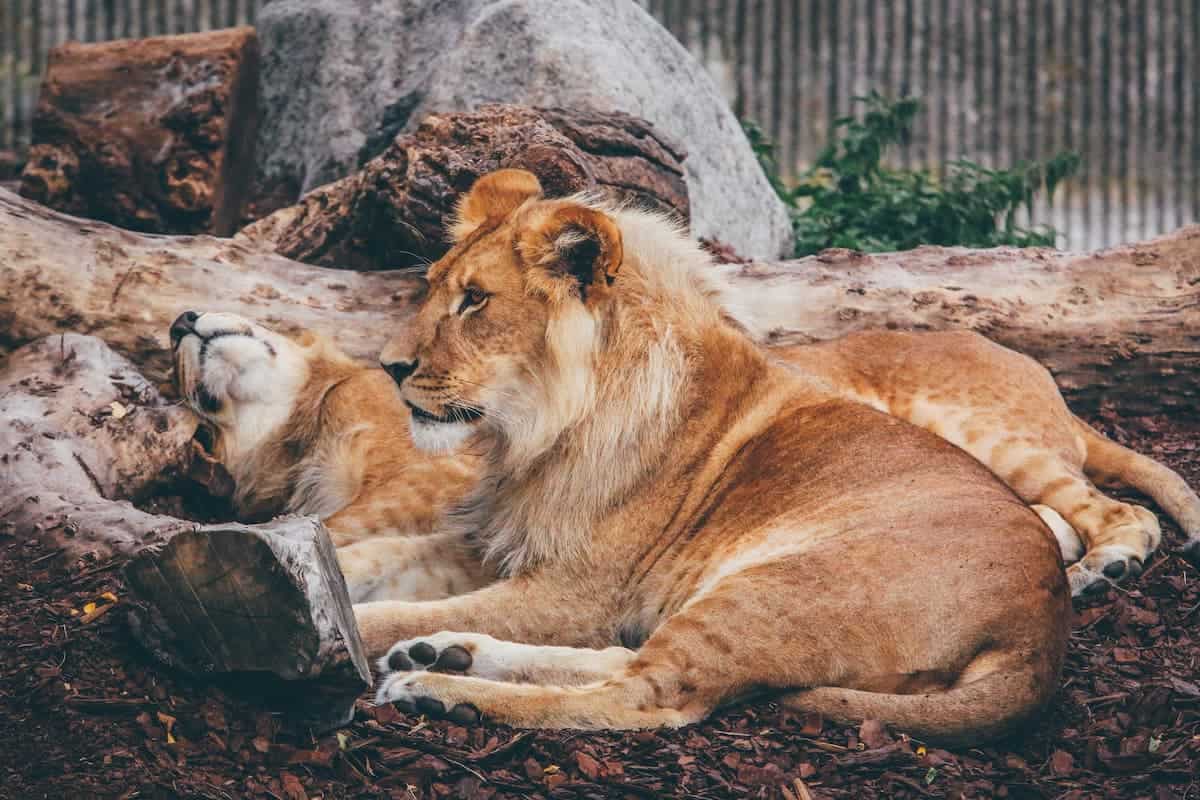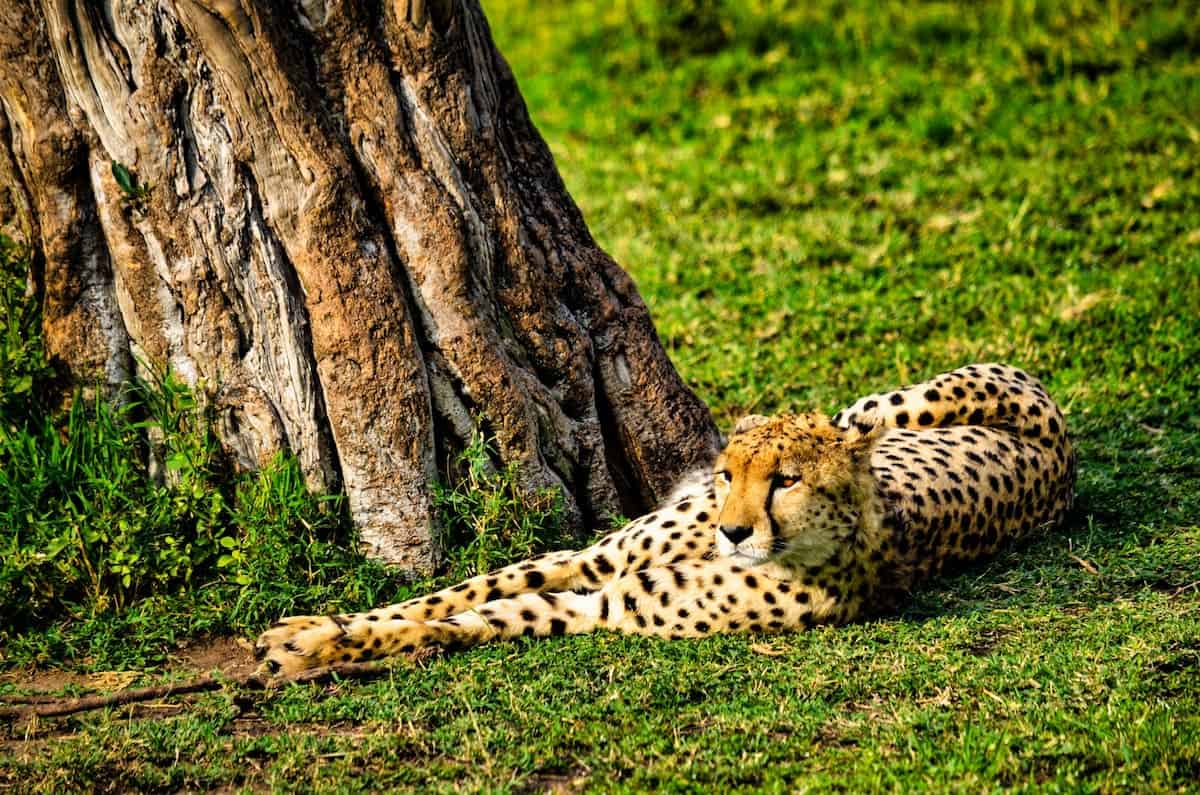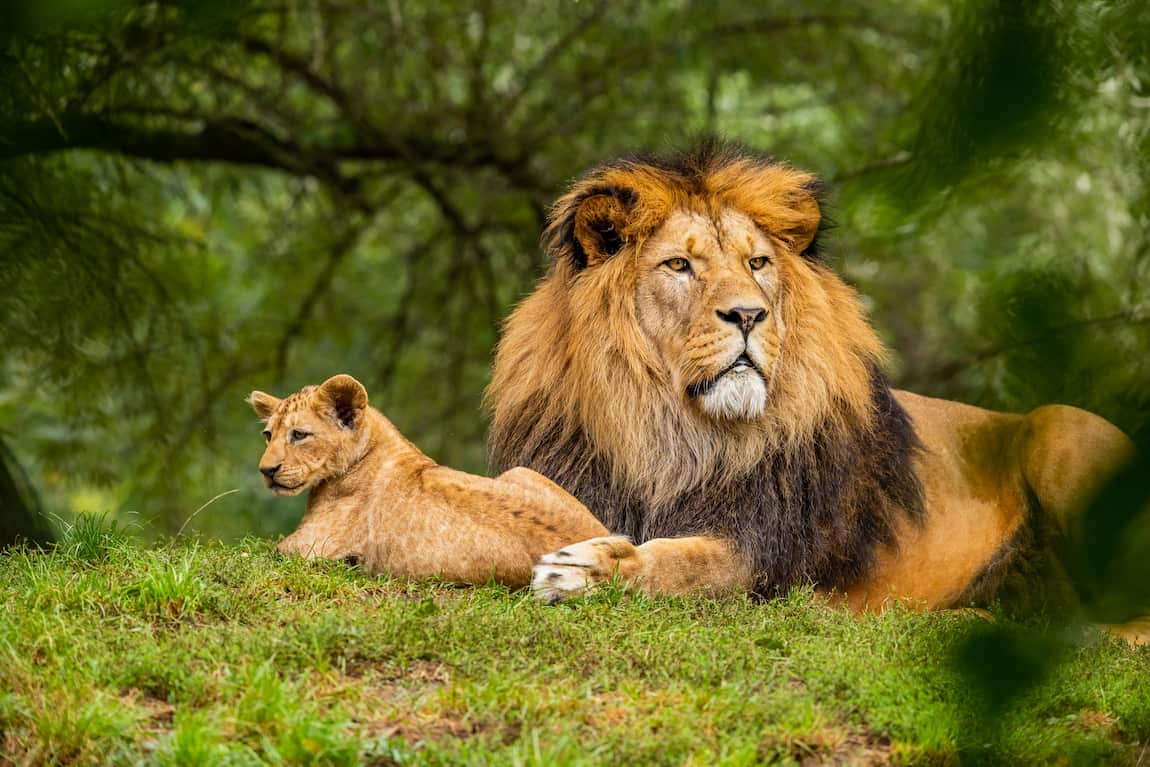Lions are majestic creatures that strike awe into the heart of everyone who encounters them. Lions are large cat family members, but you may wonder if they have similar sleeping habits to your domestic house cat and where they would sleep.
Lions sleep in different places depending on the climate conditions and their circumstances. Lions sleep on the ground, in the shade, on rocks, and where they have made a kill. Lions are territorial and may have various locations in their territory they prefer to use as sleeping places.
Two species of large cats are called lions, the African lion, and the American Mountain Lion. While they share the same name, they have different habitats and sleeping habits. We will take a look at the African lion, so if you have ever wondered where you might find these beasts taking a catnap, read on to find out!
So, Where Do Lions Sleep?
Most people associate lions with the African wilderness, and these lions are the Panthera leo or the African Lion. Lions range across many diverse habitats, from savannah grasslands to semi-desert regions. The habitats they are found in will influence the locations they choose to bed down when they need some sleep.
Considering the concept that lions are the kings of the jungle, the answer to the question where do lions sleep? Is anywhere they want to! This really sums up the whereabouts of locations where lions choose to sleep, but we will look at some of the more common areas where you can find them napping.
Lions Sleep In the Shade
The sun gets very hot in Africa, where these lions live, making a shady spot a very attractive sleeping place for a pride of lions. The temperature in the shade can easily be 10 to 15-degrees cooler in the shade than in the direct sunlight, and if a gentle breeze is blowing, it makes the shade temperature even cooler. Lions are large animals with bulky bodies that heat up very quickly in the sun, which results in them seeking out a shady spot to lie down and rest during the hottest part of the day. The shady spots they seek out as a good nap spot can include the shade under a tree, the shade of a large rock, or even the shade offered by the steep sides of a gully.
Lions Sleep In The Grass
Lions live on the savannah grasslands, which have large stretches of land covered in long flowing grass. Lions will often take advantage of the long grass and bed down anywhere in the grass. They like the grasslands as a sleeping location for several reasons.
- Shade – The grass provides a certain level of shade, particularly when the sun is lower in the sky.
- Concealment – Grass provides cover to conceal the presence of the lions, so when they lie down to sleep, the herds of prey animals they are following cannot see them and are unaware of their presence unless they smell the lion’s scent.
- Cooler temperatures – The temperature at ground level in grassland is cooler than lying in direct sunlight. The canopy of the grass protects the ground from direct sunlight, making the temperature at grassroots cooler than the surrounding air temperature.
- Comfortable – The grass provides cushioning for the lions to lie on, making for a more comfortable bed than the bare ground.
Lions Sleep On Rocks
Lions lie to sleep on rocky outcrops when they have the opportunity because of some advantages they can gain from this location. When the weather is cool, the rocks absorb heat from the sun and make a nice warm bed for the lions to lie on. The rocks also offer an elevated position that allows the lions to see over the top of the grass and survey their territory and the movements of the animals they eat and any other lions that may invade their territory. The color of the lion’s coat allows them to blend in very well with the color of the rocks, which makes it difficult for their prey animals to spot them lying on the rocks. Sleeping on rocks allows the lions to monitor their surroundings while they rest.
Lions Sleep In Dry Riverbeds
Many of the rivers in lion territory in Africa dry up in the dry, winter months of the year. These dry, sandy river beds are often used as sleeping places by lions. The sand in dry river beds is soft and makes for a comfortable sleeping area for the lions. If the sand still holds some moisture, the sand can make for a cool place for the lions to rest. If the river banks are steep, they can provide shade for the lions, and as we have already seen, lions love the shade! The riverbanks can also offer concealment for the lions, allowing them to ambush unsuspecting animals that come close to the banks or enter the dry riverbed.
Lions Sleep Near A Kill
If lions have made a recent kill, they will often spend days at the kill site, feasting on the carcass in between napping. If the kill is a large animal such as a buffalo, it could easily feed a pride of 10 lions for two or three days. The lions will sleep at the kill site to eat as much as they can from the carcass and protect the meat from scavengers such as jackals, vultures, and hyenas. They will sleep anywhere on the ground near the kill but may seek out the shade of some nearby bushes or trees during the heat of the day. However, they will not wander far from the carcass, which will risk the kill being stolen by other opportunistic predators.
Lions Sleep In Their Own Territory
Lions are territorial animals, and they will defend their territory ruthlessly and will fight intruders to the death if necessary. As a result of their territorial behavior, lions will only sleep in the territory they control. Wandering into the territory of another pride of lions would result in a savage fight that could result in injury or death. In the African plains, even an injury could mean death since an injured lion cannot hunt. By making sure they stay in their own territory, a lion can sleep peacefully, knowing they have the protection of the rest of their family group.
Conclusion
African lions, or Panthera leo, to give them their official title, sleep in various locations within their territory.
Lions can be found sleeping in the shade of trees, rocks, in the long grass of the savannah grasslands, on rocky outcrops, or in dry riverbeds.
Lions also like to sleep where they have made a large kill, which allows them to eat, sleep, repeat, and protect their kill from other predators.
Wherever you may find lions sleeping on the African plains, it would be best if you did not disturb their time of rest; they may wake up hungry and consider you a snack!





